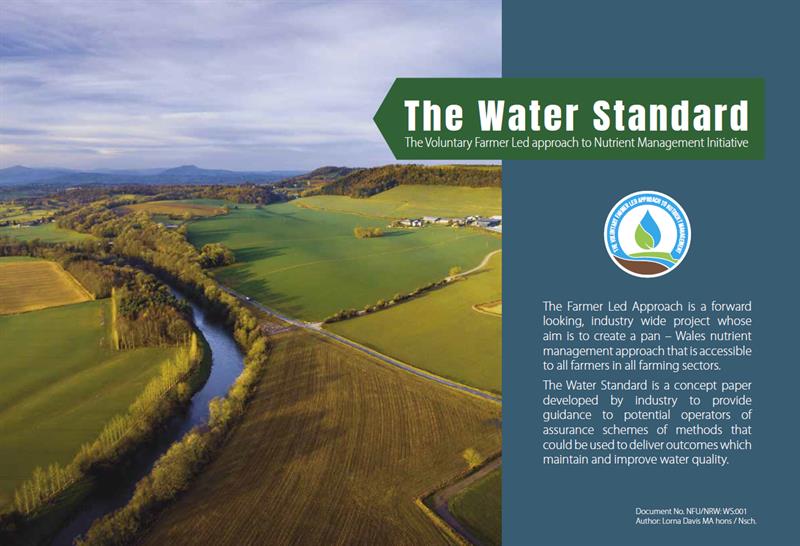Following the conclusion of the Voluntary Farmer Led Approach to Nutrient management project at the end of March 2020 the following presentation, and supporting notes outline the drivers behind embracing water quantity and quality, the project deliverables and it’s achievements.
This project is a funding partnership between NFU Cymru and Natural Resources Wales, with support on the project Steering board from Dwr Cymru, Welsh Government and Farmers’ Union of Wales.
The project aimed to collate the industry's appetite to engage with water quality on farm through good nutrient management and the understanding of risk within their holding from diffuse and point source pollution. This culminated in the creation of the Water Standard document listing a wide range of farming practices which are a risk to water quality, and the opportunities on farm to mitigate / remove those risks through business and environmental enhancements. A download is available at the link below.
The Water Standard document is a concept paper developed by industry to provide guidance to potential operators of assurance schemes of methods that could be used to deliver outcomes which maintain and improve water quality.
I am proud to say that I have had 100% support from NFU Cymru / FUW and the farming community across Wales on the development of the Voluntary Farmer Led Approach. This has been supported by input from the Steering board and is illustrated in the capturing of benefits this piece of work could deliver when addressing the challenges of climate change and environmental impact farming has going forward.
I would like to thank all who have inputted to the document, discussed water with myself or my NFU Cymru colleagues, and inputted at County conferences, shows, and events where the project, and water quality in general has been discussed, it has been an honour to be involved.
Going forward the completion of this work draws the project to a close at the end of March 2020. It would be nice to see the next steps including access to all farmers on:
- ‘What is your water quality?’
- ‘How do you affect it?’ – how to identify your impacts, and what risks/opportunities does this include?
- Methods to evidence current best practice / changing behaviours to address risks.
- Agreed value to the benefits delivered to access public goods and services going forward.
- Means of capturing this information in a single place, and creating a costed action plan for farmers to develop their method to address risk in a cost effective manner for the business.
